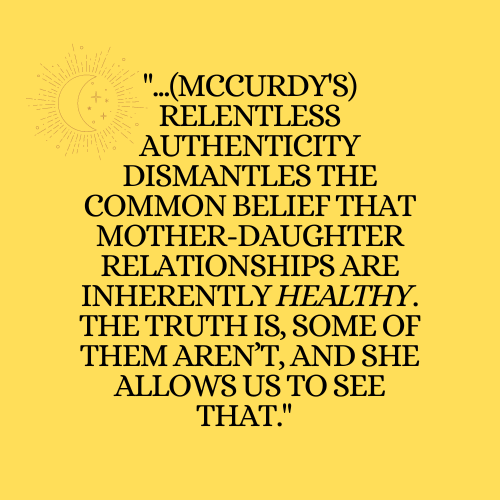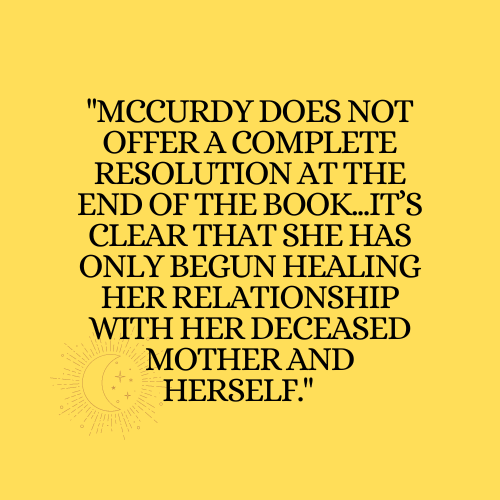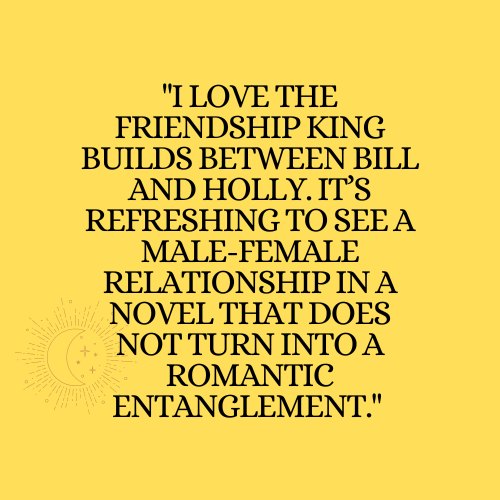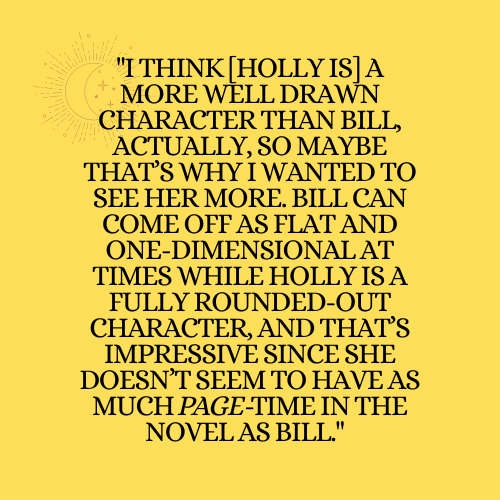Book Review: Jennette McCurdy’s I’m Glad My Mom Died
*BE WARNED: SPOILERS AHEAD*
A Little Summary
In 2022, Jennette McCurdy released her autobiography controversially titled I’m Glad My Mom Died. The title alone was enough for me to pick up the book, as I’m sure was the case for many of her readers.
If you’re not familiar with Jennette McCurdy, she is most well-known for her role on the Nickelodeon teen show iCarly (2007-2012) in which she played the role of Carly’s loveable yet troubled best friend, Sam Puckett. Following iCarly, McCurdy also had a spin-off show, Sam & Cat (2013-2014), in which she reprised the role of Sam Puckett and co-starred alongside Ariana Grande as Cat. As you might have gathered from this brief description of McCurdy’s primary acting credits, she was a child star and—as is the case for many child stars—suffered because of her early childhood stardom.
The suffering that McCurdy describes, though, is like nothing I’ve ever encountered before in an autobiography. She chronicles the horribly toxic, destructive, and abusive relationship she had with her mother while growing up and how that relationship eventually forced her to reframe her entire childhood and life: McCurdy had to accept that her mother’s behaviour toward her was not purely out of love—as her mother would have her believe—but stark abuse and manipulation.
In the book, McCurdy details accounts of abuse from her mother such as forcing her to audition for television shows and films at an extremely young age; encouraging her to work long hours on set despite the conditions; introducing her to calorie restriction and anorexia at a young age so she could stay small in stature and continue to audition for younger roles; showering her and giving her invasive bodily exams until she was in her late teens; and controlling her familial relationships, friendships, work relationships, and sexual relationships.
To be quite honest, it’s difficult to try and capture the full scope of the book in a short summary since every chapter explores a different form of abuse or trauma: there is no simple plotline and no complete resolution.
So, let’s just dive into the good stuff, some critique, and whether or not I recommend you read this book, shall we?
All the Good Stuff
The first thing I want to mention is McCurdy’s authorial voice. Although she had some help from an editor—she thanks her editor in the “Acknowledgements”—her voice still comes through as real, raw, and even rowdy at times. I mean, she doesn’t hold back at all: she shares her innermost thoughts regarding her mother despite the fact that some of them might be construed as morbid, sordid, or insensitive; she includes whole emails and messages sent by her mother to showcase their dysfunctional relationship rather than simply providing summary; she gives explicit accounts of her intimate and sexual relationships, as well as how her mother strangely tried to control those relationships; and she unapologetically ends the book by stating that she’s never going to return to her mother’s grave. McCurdy is so honest about everything and it’s something worth appreciating. Additionally, her relentless authenticity dismantles the common belief that mother-daughter relationships are inherently healthy. The truth is, some of them aren’t, and she allows us to see that.

The second thing I want to mention is the fact that—perhaps inadvertently but perhaps not—McCurdy provides real-life examples of what sexual assault, abuse, harassment, and manipulation can look like. There is the example I noted earlier where McCurdy’s mother showered her and performed bodily exams upon her, which was clearly a violation of her bodily and sexual autonomy. McCurdy also shares an experience she had with “The Creator”—a man with whom she worked on iCarly—where he inappropriately massaged her. Finally—there are likely other examples in the book, but this is the last one I wish to discuss—McCurdy describes a sexual encounter she had with a much older boyfriend where he basically guilted her into giving him oral sex because she refused to have intercourse with him. This one was difficult for me to read but I’m so glad she included it because it is likely one of the most common forms of sexual abuse: guilting someone into sex. This form of sexual abuse can occur even in long-term relationships and marriages. I have definitely experienced this kind of abuse in past relationships without even realizing it was abuse, and I’m sure countless others can relate, too. It’s important to show that sexual abuse comes in various shapes and forms, and McCurdy does just that in her autobiography.
I feel like I’ve been going on forever but there’s one more thing I’d like to mention before I get to some critique (and, spoiler alert, I don’t have a lot of critique for this book). It’s quite possible that someone might pick up this book and simply choose not to read it because McCurdy is a star and—let’s be real—a star writing about her problems can easily come off as being ungrateful or jaded. The thing that I like about McCurdy, though, is that she’s very aware of her social position and privilege. In fact, she openly recognizes her privilege many times throughout the book, which is a necessary part of writing a confession-style autobiography like hers.
Some Critique
Like I said, I don’t really have a whole lot of critique for this book. It’s difficult to critique someone’s subjective experience, especially when they present it in such an empowering manner as McCurdy does.

I suppose one thing worth mentioning—though it’s not really a critique per se—is that this book could potentially be very triggering for individuals currently working through or recovering from an eating disorder; for individuals recovering from an alcohol addiction; for individuals who experienced abuse within their own home growing up; for individuals who have been sexually assaulted or abused; or for individuals who are struggling with dysfunctional family relationships. I don’t get triggered very easily by anything, so it was easy for me to appreciate the book. However, I realize that others might not be in the same boat as me when it comes to their triggers.
Another thing—but, again, not really a critique—is that McCurdy does not offer a complete resolution at the end of the book. Yes, she decides that she is never going to visit her mother’s grave again, but it’s clear that she has only begun healing her relationship with her deceased mother and herself. Some readers might find this open ending to be a bit dark or depressing. I actually enjoyed the open ending as it’s real, raw, and rowdy, just like McCurdy’s authorial voice.
Should You Read I’m Glad My Mom Died?
If you are not easily triggered then, yes, I think Jennette McCurdy’s I’m Glad My Mom Died is definitely worth a read. To be blunt, it’s one of the best books I’ve read in some time.
Additionally, if you’re hesitant and think the content might be too heavy for you, let me just say this: even though the book is, indeed, quite heavy and dark, McCurdy has a sense of humour about everything, and her sense of humour in no way detracts from the serious subject matter of the book. It actually complements it, if that makes sense.
And if it doesn’t make sense, well, then I guess you’ll have to read the book to find out just what I mean, now won’t you?

